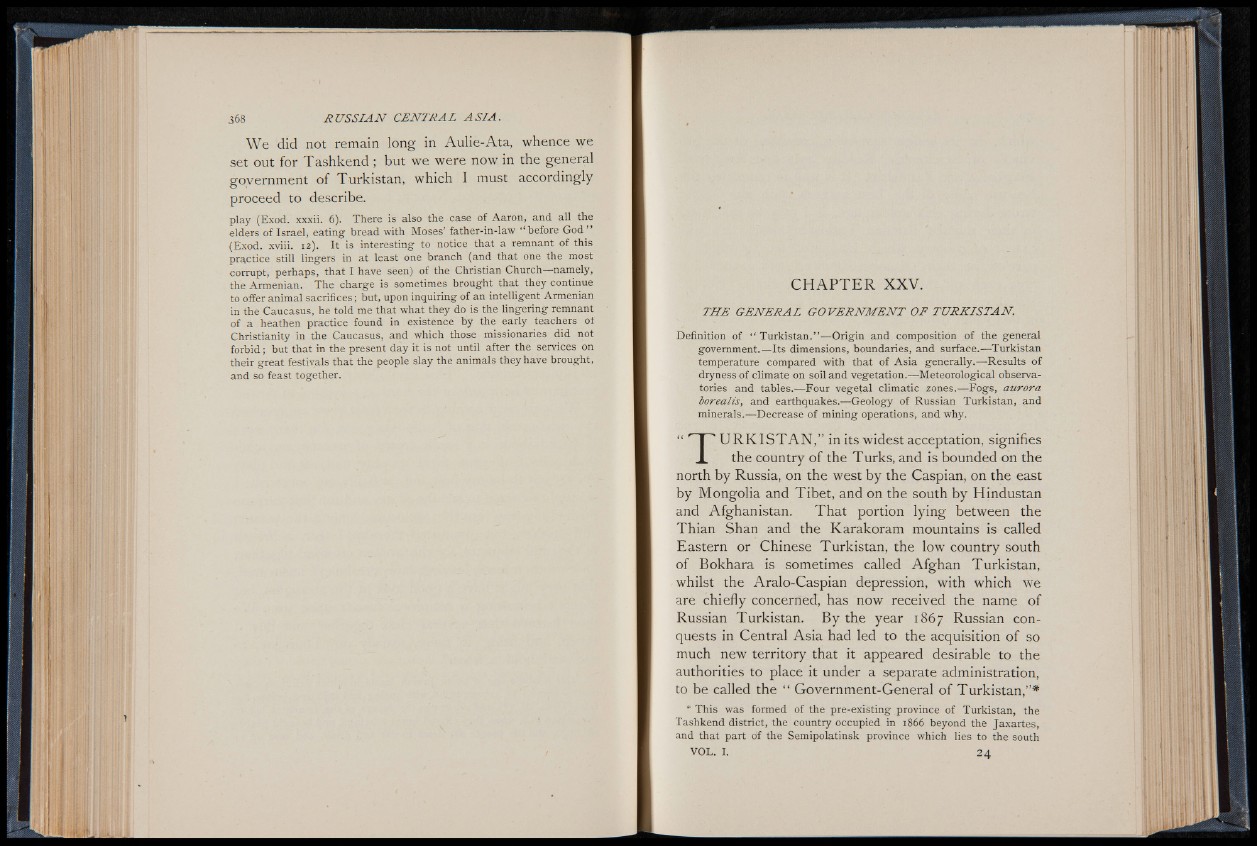
We did not remain long in Aulie-Ata, whence \ve
set out for Tashkend ; but we were now in the general
government of Turkistan, which I must accordingly
proceed to describe.
play (Exod. xxxii. 6). There is also the case of Aaron, and all the
elders of Israel, eating bread with Moses’ father-in-law “ before G o d ”
(Exod. xviii. 12). It is interesting to notice that a remnant of this
practice still lingers in at least one branch (and that one the most
corrupt, perhaps, that I have seen) of the Christian Church -namely,
the Armenian. The charge is sometimes brought that they continue
to offer animal sacrifices; but, upon inquiring o f an intelligent Armenian
in the Caucasus, he told me that what they do is the lingering remnant
o f a heathen practice found in existence by the early teachers of
Christianity in the Caucasus, and which those missionaries did not
forbid; but that in the present day it is not until after the services on
their great festivals that the people slay the animals they have brought,
and so feast together.
C H A P T E R X X V .
TH E G E N E R A L GO V E R NM EN T O F TU R K IST A N .
Definition of “ Turkistan.” — Origin and composition of the general
government.— Its dimensions, boundaries, and surface.— Turkistan
temperature compared with that of A sia generally.— Results of
dryness o f climate on soil and vegetation.— Meteorological observatories
and tables.— Four vegetal climatic zones.— Fogs, aurora
borealis, and earthquakes.— Geology of Russian Turkistan, and
minerals.— Decrease of mining operations, and why.
TU R K I S T A N , ” in its widest acceptation, signifies
the country of the Turks, and is bounded on the
north by Russia, on the west by the Caspian, on the east
by Mongolia and Tibet, and on the south by Hindustan
and Afghanistan. That portion lying between the
Thian Shan and the Karakoram mountains is called
Eastern or Chinese Turkistan, the low country south
of Bokhara is sometimes called Afghan Turkistan,
whilst the Aralo-Caspian depression, with which we
are chiefly concerned, has now received the name of
Russian Turkistan. By the year 1867 Russian conquests
in Central Asia had led to the acquisition of so
much new territory that it appeared desirable to the
authorities to place it under a separate administration,
to be called the “ Government-General of Turkistan,”*
* This was formed of the pre-existing province of Turkistan, the
Tashkend district, the country occupied in 1866 beyond the Jaxartes,
and that part of the Semipolatinsk province which lies to the south
VOL. I. 2 4